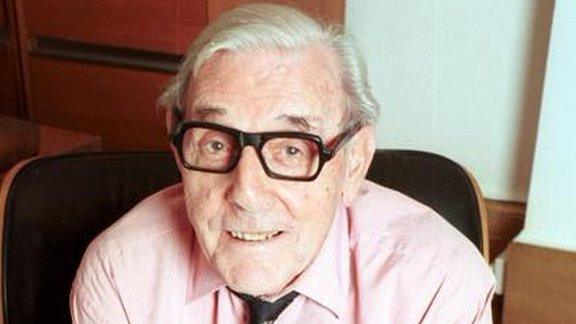How Denis Norden stumbled upon concentration camp horror
- Published
Denis Norden "accidentally" visited the Nazi concentration camp Bergen-Belsen in 1945 after it was liberated as the war in Europe ended
TV presenter and comedy writer Denis Norden has spoken for the first time about his "accidental" visit to the Bergen-Belsen concentration camp.
Norden, who was serving in the RAF during World War Two, went to the liberated camp in northern Germany to find lighting for a show he was putting on.
He went with fellow performers the late Eric Sykes and Ron Rich and none of them had any idea what the camp had been used for.
Norden, who hosted ITV show It'll Be Alright On The Night and appeared on BBC radio panel programmes My Word! and My Music, had formed entertainment units with the likes of Sykes to put on shows for the troops and to get off guard duty.
"We were doing a show at this particular RAF camp nearby, we were short of lighting equipment, and somebody said 'There is a kind of camp near us, which had all sorts of lights for illuminating it at night, you can take those', so we took this truck along," he said.
"We didn't know what to expect, we had not heard a word about it."
Speaking to BBC Radio 4's The Robert Peston Interview Show (with Eddie Mair), Norden said they went back to their own camp and gathered as much food as they could.
"We told everyone you've never seen anything like it, and everybody in the unit contributed whatever spare food they had, or had been sent from home, and we took it along there.
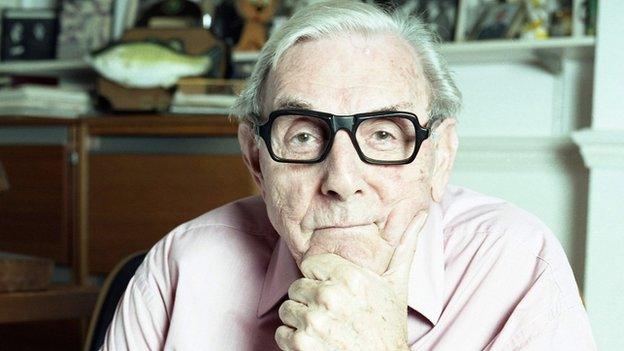
Comedy actor and writer Eric Sykes died in 2012
"I've always had this awful feeling that it was wrong for us to do that, people so emaciated to have this rich food poured upon them, what it did to them."
The only other mention of this visit is in Syke's autobiography. The comedian died in 2012, aged 89.
"Ron Rich, Denis Norden and I were totally unprepared for the sights that hit us between the eyes.
"Appalled, aghast, repelled - it is difficult to find words to express how we felt as we looked upon the degradation of some of the inmates not yet repatriated," he wrote.
"As far as I could see, all these pitiable wrecks had one thing in common. None was standing.
"They squatted in their thin, striped uniforms, unmoving bony structures who could have been anywhere between 30 and 60 years old, staring ahead with dead, hopeless eyes and incapable of feeling any relief at their deliverance."
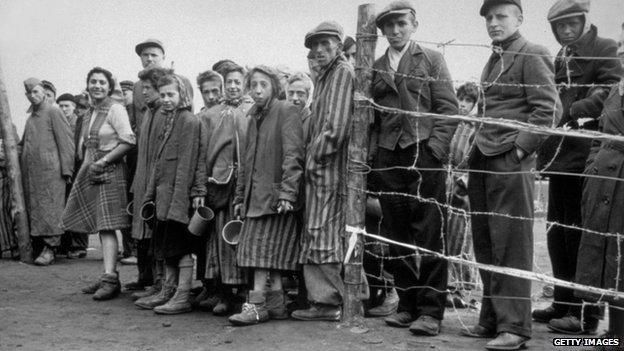
April 1945 - survivors await rations of potato soup at Bergen-Belsen
The British army liberated Bergen-Belsen on 15 April 1945.
It had been used to house prisoners of war, exchange prisoners and finally Jewish evacuees from concentration camps across Europe.
While it did not contain any gas chambers, about 70,000 prisoners died mainly through starvation and disease.
One of Belsen's best-known prisoners was the young diarist Anne Frank, who died in the camp in March 1945.
Norden, who retired in 2006 due to deteriorating eyesight, said he also fed the German children.
"What was notable, was that the Germans themselves, wherever we were, were not receiving food at all really, and they were becoming very emaciated as well," he said.
"The little German kids would hang around when you're eating your food, eating your own rations, just looking at you, so everybody gave food to these kids.
"After seeing the camp, you could in theory hold it against the Germans, but you couldn't hold it against these German kids."
The Robert Peston Interview Show (with Eddie Mair) is broadcast on BBC Radio 4 on Mondays at 23:00 BST. The series is running for six episodes - each presenter has three episodes in which to choose a guest, whose identity is only revealed to the other presenter just before recording.
- Published15 April 2015
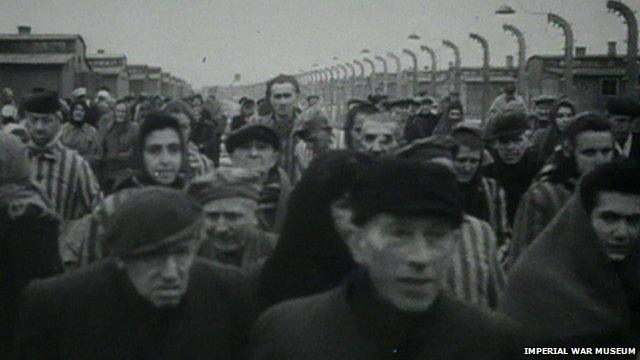
- Published15 April 2015
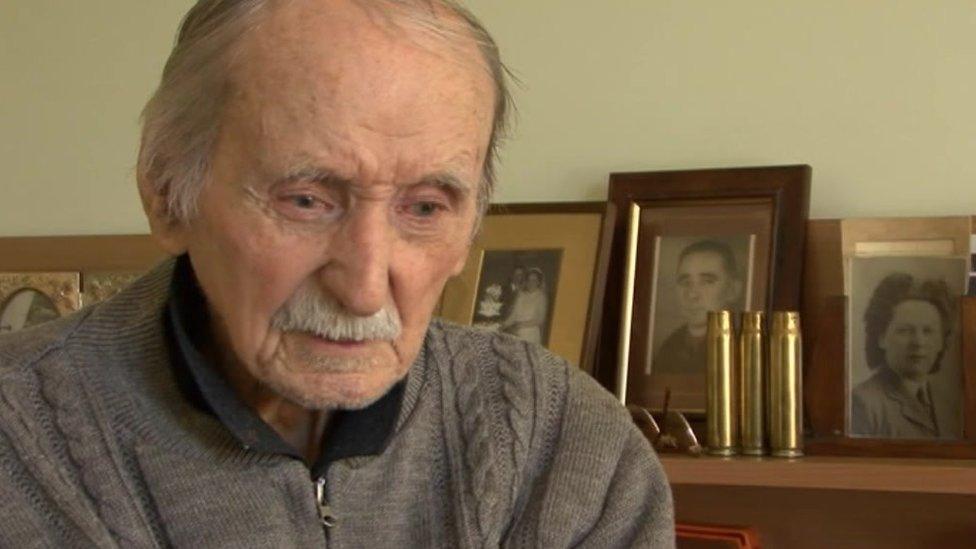
- Published4 July 2012
